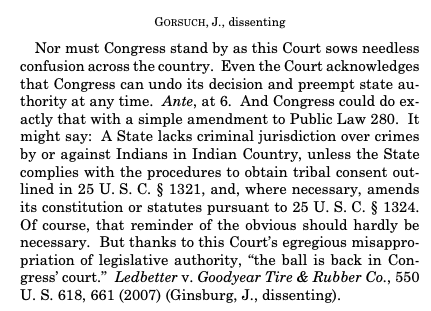
#SCOTUS could shake the foundations of Indian law this term in Brackeen, a constitutional challenge to the Indian Child Welfare Act. Honored to file a brief on behalf of @The_OAH and @AHAHistorians. This is the first time either organization has filed in an Indian law case. 1/ 

Native children have never been the province of the states. ICWA was simply a continuation of 200 years of federal policy over Native children. When the federal government tried to convince states to assume jurisdiction over Native children in the mid-20th c., states refused. 2/
State governments refused jurisdiction over Native families because they were poor and it could not raise revenues from them. Natives were the responsibility of federal and tribal governments, states argued, and they refused to support Native families with state welfare. 3/
The federal government had to develop 100% federally funded programs that states would administer through contracts. One of these programs was foster care for Native children. These state-federal contracts required more federal intervention than ICWA, beginning in the 1930s. 4/
State-federal contracts incl.: substantive standards of removal, including preference for Native families and communities; state record keeping and reporting to the feds; the states were required to allow federal officials access to foster homes and records at any time. 5/
States administered these fed. programs, but still sought to cut costs. It was cheaper to support a Native child in a middle-class foster home, than to support a Native family living in poverty. States removed ca. 25-35% of all Native children from their families in the 1960s. 6/
ICWA was a recognition that state administration was a failure. ICWA set similar requirements than that of the state-federal contracts, if states continued to exercise jurisdiction over Native children. But it mostly strengthened the longstanding power of tribal governments. 7/
ICWA also resembles laws from that period that strengthened protections for foreign national children in state courts. These laws recognized that children are the heart of sovereignty. The political status of these children as potential citizens is central, not their “race.” 8/
Oral argument is set for November 9, 2022. This case could allow #SCOTUS to wreak havoc for Native children and Indian Country.
Please find the brief here: supremecourt.gov/DocketPDF/21/2…
Please find the brief here: supremecourt.gov/DocketPDF/21/2…
• • •
Missing some Tweet in this thread? You can try to
force a refresh





